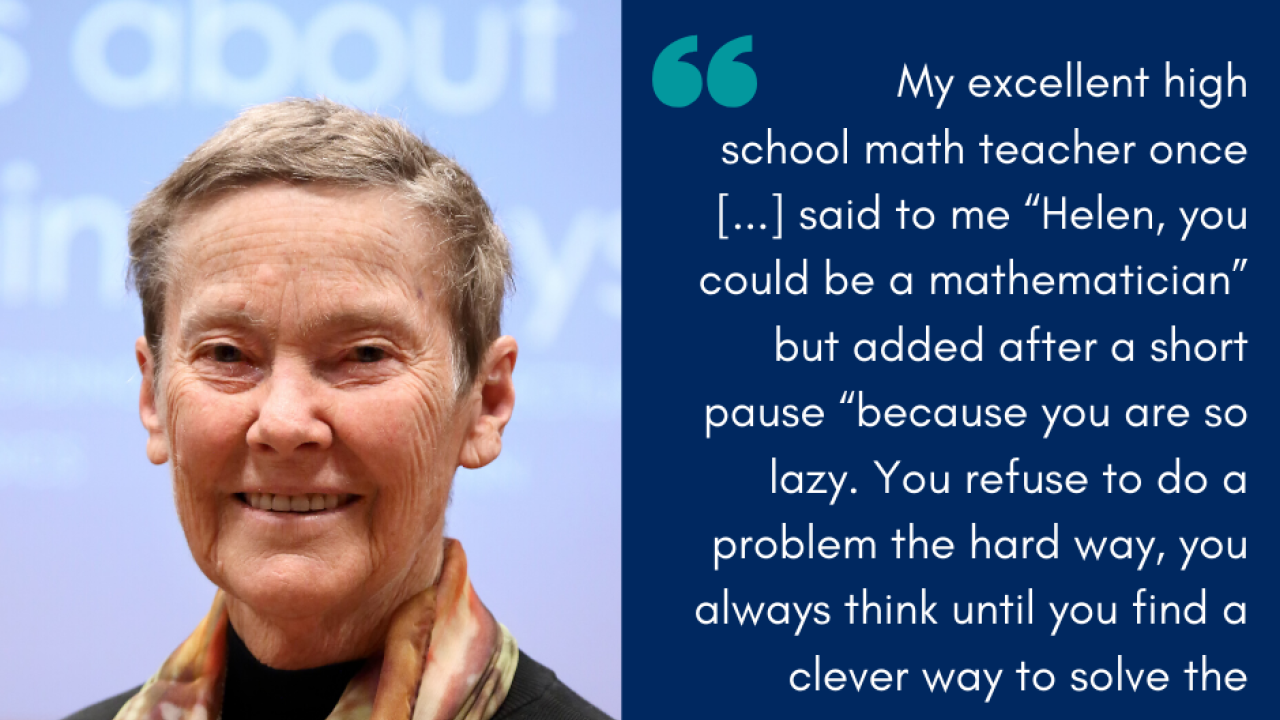
Why be a scientist? Nearly every scientist has a different answer and a different inspiration, drawn from varied careers, outlooks, and experiences. For its 40th anniversary in 2004, ICTP published the book One Hundred Reasons to be a Scientist, a collection of 100 essays from many eminent physicists and mathematicians with a connection to ICTP. The book is a source of many insights from the lives and careers of scientists, including Mildred Dresselhaus, Freeman Dyson, Vera Rubin, and Francis K.A. Allotey. The authors discuss what led them to study science, the difficulties they encountered and overcame, and their passions and hopes for the future.
We are revisiting twenty of these stories highlighting one of them every week, sharing inspirations from the essays and showcasing the words of these great scientists. During the uncertainty of the current global pandemic, the words will hopefully help researchers feel less alone in their scientific path.
We are presenting this week the story of Helen Quinn, an Australian-born particle physicist who has made great contributions in the field of theoretical physics, and especially in the search for a unified theory for the three types of interactions - strong, electromagnetic, and weak – between particles.
From her school days in Melbourne to her brilliant career in the United States, where she became a professor of physics at the Stanford Linear Accelerator Laboratory (SLAC), you can read her story here.
Quinn has strong ties with ICTP: she has visited the centre several times and is the only woman, so far, to be awarded the Dirac Medal. If you want to learn more about Professor Quinn and her research, you can watch two of her lectures from ICTP archives. In 2010 she contributed to ICTP’s “After 45” celebrations by giving a talk on the “Importance of education and training in the developing world” that you can watch here. Moreover, in 2017 she gave a lecture, as a part of ICTP’s Colloquium Series, on “What Research on Learning Tells Us About Teaching Physics”. You can watch it here.
Finally, if you are interested in learning about 99 more scientists and what inspired them, you can find the whole book in electronic format for free download on ICTP’s library website, in English, Italian and Urdu.
Here you can read the previous stories:
















